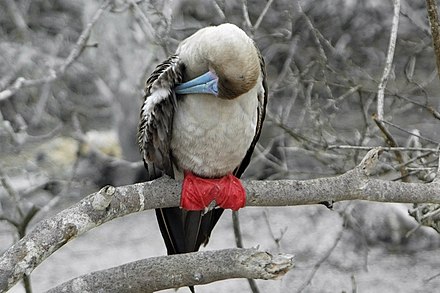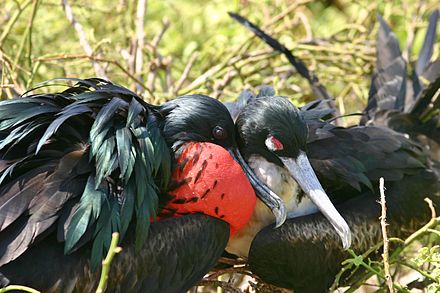Genovesa - Island in the Galapagos Archipelago in Ecuador
Genovesa Island, also known in Spanish as Isla Genovesa or by its English name of Tower Island, is one of Galapagos Islands of Ecuador.
Understand
 Genovesa is considered one of the three must see sights in the Galapagos, featuring the largest red-footed boobie colony in the islands, over 200,000 Galapagos storm petrels, great frigate birds, Nazca boobies, swallow-tailed gulls, and short-eared owls. Of the Darwin finches, the warbler finch, large cactus finch, large ground finch, and small-beaked ground finch are all found on this island.
Genovesa is considered one of the three must see sights in the Galapagos, featuring the largest red-footed boobie colony in the islands, over 200,000 Galapagos storm petrels, great frigate birds, Nazca boobies, swallow-tailed gulls, and short-eared owls. Of the Darwin finches, the warbler finch, large cactus finch, large ground finch, and small-beaked ground finch are all found on this island.
The island is relatively small, with a total area of only 5.4 square miles. Unlike many of the islands which have prominent highlands, the highest elevation on Genovesa is only 250 feet above sea level. Darwin Bay, the main bay of the island, is actually a flooded volcanic caldera. Next to Darwin and Wolf), Genovesa is the most remote of the islands, and requires an overnight boat ride through seas that can occasionally become mildly rough.
See the Galapagos wildlife page for more information on the flora and fauna of the islands.
Get in
Get around
See

Visitor sites
Prince Phillip's Steps
Prince Phillip's steps is a dry landing onto a rocky path carved directly into the rocky volcanic walls of the island. The path leads up the 25m high walls to the largest bird colonies on the island. A 1 km trail winds through great frigate nesting sites, red-footed boobies, Nazca boobies, and out to the edge of the island where Galapagos storm petrels fill the air so thickly that it's a wonder they find space to fly.
Darwin Bay
The landing site for Darwin Bay is a small beach at the end of the bay. Sea lions will often haul out on the white sands, and numerous birds nest in and near the mangroves that line the 0.75 km path. The trail here leads up to the top of the cliffs that surround the bay, providing a nice view.
Underwater sites
Darwin Bay
The main bay within Genovesa island is actually a flooded volcanic caldera, and provides one of the best opportunities to see hammerhead sharks while snorkeling.
Do
Buy
Eat
Drink
Sleep
Connect
Go next
Genovesa Island
Date Time:Please wait...Timezone:Pacific/Galapagos0Coordinates:0.32, -89.95
Galápagos
Primary administrative division